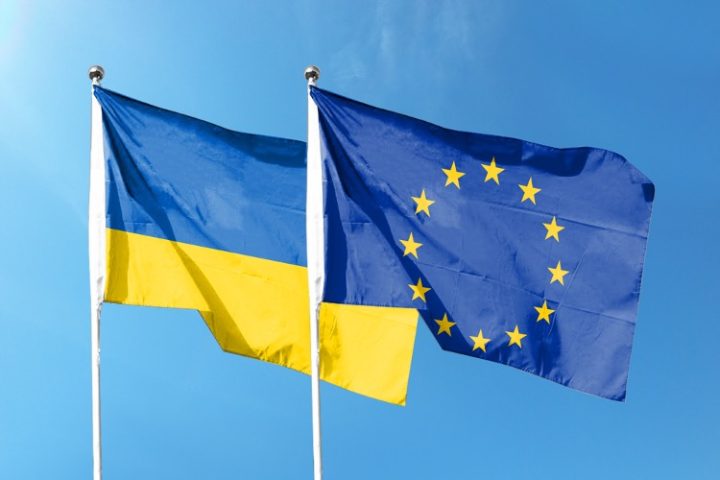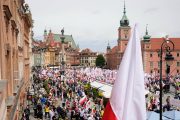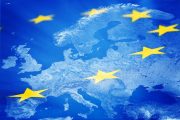
On August 28, European Council President Charles Michel declared that the European Union (EU) plans to start talks regarding the membership of Ukraine and some other countries as early as October this year.
The Financial Times (FT) also claimed to have received an exclusive preview of what Michel would suggest at the Bled Strategic Forum in Slovenia.
“If we want to be credible, we must talk about timing,” Michel’s speech notes read, FT reported. “As we prepare the EU’s next strategic agenda, we must set ourselves a clear goal … we must be ready, on both sides, by 2030 to enlarge.”
Enlargement “is no longer a dream,” Michel declared in his speech to officials from Albania, Bulgaria, and former Yugoslav states.
“As we prepare the EU’s next strategic agenda, we must set ourselves a clear goal. I believe we must be ready, on both sides, by 2030 to enlarge,” Michel said. “This is ambitious, but necessary. It shows that we are serious.”
Furthermore, the alliance’s leaders would discuss expansion at the next European Council meeting poised to be held in October, said Michel, where they “will take a stand on the opening of negotiations with Ukraine and Moldova.”
Another EU-Western Balkans summit is also scheduled to be organized in December. Michel added that he hoped Bosnia-Herzegovina and Georgia would “be back on the table”
On their end, EU hopefuls need to embrace the “fundamental” EU values of “rights and dignity, democracy, and solidarity,” and enforce the rule of law “in full respect of our diversity,” Michel stated.
The European Council leader also explained why Ukraine and Moldova were given EU candidate status in June last year, alleging that Russia “is attacking all that we believe in — freedom, democracy, prosperity, and cooperation.”
Additionally, Michel also noted that “resolving bilateral conflicts from the past” was a necessary requirement for joining the EU, because “there is no room for past conflicts within the EU.”
That being said, Ukraine is presently in a conflict with Russia, Moldova has yet to address the issue of Transnistria, and the EU is pressuring Serbia to acknowledge its breakaway province of Kosovo as an independent state, though five of its own members have not done so.
Albanian PM Edi Rama lauded the enlargement declaration, but expressed concern that Ukraine was being unfairly prioritized over other Balkan countries that had been waiting for membership for years.
“Ukraine should be seen as a possible member state, but I wish this will not be [to the] detriment of the Western Balkans,” Rama said, AFP reported. Albania applied for membership in 2009, and was granted candidate status in 2014.
Serbian PM Ana Brnabic also complained that although her country was given candidate status in 2012, support for EU membership fell owing to talks stalling.
Ukraine, which has been touting its EU aspirations for some years now, officially applied to join the bloc in late February 2022, following the eruption of the Russo-Ukrainian conflict in the same month. In June 2022, the EU gave Ukraine candidate status, in a decision hailed by Michel as “a historic moment.”
Since obtaining candidate status, Ukraine has been pressuring the EU to begin accession talks as soon as possible, hopefully before the end of 2023.
Nonetheless, while some EU members have declared that they were prepared to back Ukraine in its bid to join the bloc, others have indicated that the process could take decades, as Kyiv has neither fulfilled various mandatory conditions nor enforced reforms dealing with the rule of law, corruption, oligarchs, and human rights.
In June this year, German Chancellor Olaf Scholz said in an interview with Italian daily Corriere della Sera that talks have been on how to protect Ukraine’s future after the outbreak of its conflict with Russia.
Scholz maintained that although no one could predict when the present tensions between Moscow and Kyiv would cease, “it is clear that in a post-war situation, Ukraine will need concrete and reliable commitments from partners and allies to increase its security.” The German chancellor stated that Ukrainian policymakers were in talks with Germany’s closest allies.
“Ukraine belongs to the European family!” he emphasized. “We are determined to support you on your way to joining the EU.”
Nevertheless, Scholz proceeded to underline that “membership in the European Union can only take place after the entry criteria have been met,” highlighting that the bloc itself “must do its homework” to be able to invite new members.
In February, when questioned about when Ukraine could expect to join the bloc, EU Commission President Ursula von der Leyen responded that “there are no rigid timelines, but there are goals that you have to reach.”
Last June, von der Leyen indicated that while Ukraine had done “good work” on its journey to become an EU member, Kyiv must implement “important” reforms.
Meanshile, on August 28, Mykhailo Mykhailovych Podolyak, the top aide to Ukrainian President Volodymyr Zelensky, revealed that Western supporters of Ukraine were currently at an “absolute consensus” on Ukrainian attacks deep into Russian territories claimed by Kyiv, including the Crimean Peninsula.
“Let me remind you that a year ago, even when there were some strikes on Crimea, everyone said — ‘No, no, let’s just do without it’. Today, the absolute consensus among the number of countries that support us is that we can destroy everything Russian in the occupied territory,” Podolyak told Ukrainian TV.
He was alluding to the Crimean Peninsula claimed by both Russia and Ukraine. The region, which is almost entirely populated by ethnic Russians, split from Kyiv following the 2014 U.S.-backed Maidan coup in Kyiv, ultimately joining Russia. Four other previously Ukrainian territories, namely the Kherson and Zaporizhzhya regions, and the Donetsk and Lugansk People’s Republics, were included in Russia last year after referendums.
The official also pledged to increase attacks on other Russian territories, vowing that they would be prone to assaults by “unknown drones.”
“As for Russia, there are drones. Let’s note the official position here — [drones] of an unknown nature. And of course, the number of these drones will increase,” he warned.
During the past year, Russian state media have reported that Kyiv has been culpable for drone and missile strikes, as well as sporadic artillery shelling, on Russian soil.
Recent months have witnessed Ukraine targeting the capital city of Moscow with long-range drones, a move slammed by Russian leaders as “terrorist attacks,” which targeted almost exclusively civilian sites in the capital but did not cause any major damage.



